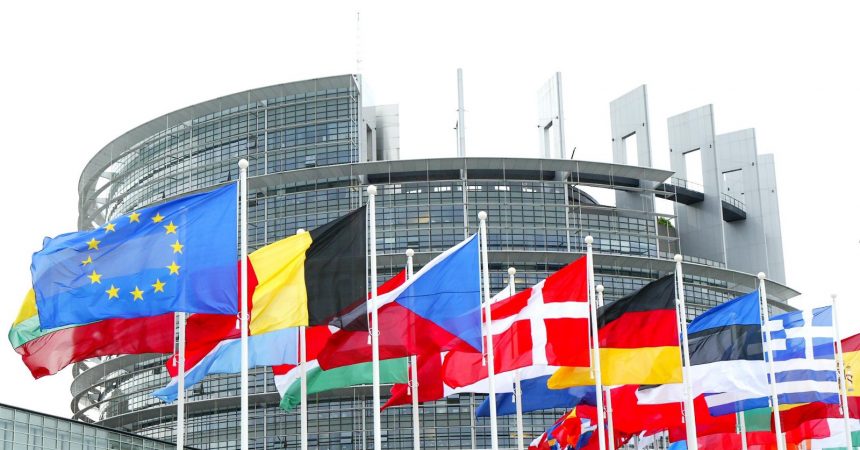The massive tally of votes garnered by the European Parliament’s resolution on Malta yesterday might prod the European Commission to “react with the Rule of Law Framework or even Article 7, although the latter is less likely”, according to an analysis by EU law expert Matteo Bonelli.
Bonelli, an assistant professor in International and European Law at The Netherlands’ Maastricht University, was asked whether the EP’s resolution is talk without bite. “It seems to be important talk”, he said, adding that it “goes beyond the strictly legal dimension” given the position adopted by the Party of European Socialists (PES).
Analysis of the votes – overall, the resolution passed by 581 in favour, 26 against, and 83 abstentions – show that PES MEPs voted overwhelmingly for the resolution. Malta’s MEPs hailing from the Labour party (PL) were starkly isolated in the European Parliament.
Maltese Prime Minister Joseph Muscat has not only been disowned by his European political family, but they also joined the clamour for his political scalp: the resolution “stresses” that the “risk” of investigations being compromised “persists for as long as the prime minister remains in office.”
Aside from the immediate impact on Muscat, this puts intense pressure on the PL – the PL forms part of the PES family – and gives strong impetus to the EU Commission to move more decisively on Malta.
Strategically, the ten-page resolution, described as “quite strong” by Bonelli, opted for multi-fronted movement instead of the one big and early move called the “nuclear option” – or Article 7 in technical jargon. Article 7 was only mentioned obliquely in the resolution.
European Parliament sources told The Shift that a direct push for Article 7 was abandoned on account of the European Council’s reluctance to impose sanctions on recalcitrant countries.
Article 7 of the EU Treaty envisions a two-step procedure to censure and sanction countries that lapse in fundamental EU values of democracy, justice, and rule of law.
In the first step, a country is censored – this has been described as a yellow card – and, if the country remains intransigent, the procedure would escalate to sanctions, including loss of voting rights.
This would symbolically push a country to a corner or reduce it to vassalage – being under the rules and obligations of the EU without being allowed to take part in decision making of the European Council, the highest EU body of Prime Ministers or their delegates.
Article 7 procedures have only been initiated against Poland in December of 2107, and against Hungary in September of 2018, yet the European Council has yet to vote on formal imposition.
This is due to manoeuvring by some countries to stall the process, as well as the hesitation of other governments. A formal trigger may only require four-fifth majority in the Council, but the European Council has “a culture” of decision-making by consensus, Bonelli explained.
The resolution adopted yesterday instead unequivocally calls on the EU Commission to make multiple moves on Malta.
One of these is to initiate a “dialogue with the Maltese government in the context of the Rule of Law Framework without further undue delay”. This refers to an instrument devised in 2014 and employed once so far, in the case of Poland, a formal sort of “dialogue” in which the Commission issues opinions and recommendations.
Another is to implement a monitoring mechanism which has as yet never been used. This mechanism was conceived and voted upon by the European Parliament in 2016 under the acronym of DRF – which stands for Democracy, Rule of Law and Fundamental Values – and the idea is to create a watchdog to assess Member States on these criteria.
The idea, says Bonelli, is to have an “expert panel in charge of monitoring Member States, and if they find a problem with democracy and the rule of law, then the Commission would be forced to decide on the activation of Article 7. It could still say no, but would have to motivate.”
“Would it immediately change things on the ground?” he asks rhetorically. “Probably not, but still I think it would be a step in the right direction and increase political pressure on Member States. After all, the EU cannot really ‘compel’ countries to improve rule of law, in the sense that it does not have enforcement tools comparable to, for example, Federal States.”
Yet another point of the resolution “calls on the Commission to use all tools and procedures at its disposal”. Bonelli said that this probably refers to infringement actions, or procedures, that the Commission can initiate at the European Court of Justice. It’s the equivalent of taking the country to court for being in breach of EU law.
“Infringement actions are possibly the most effective tool the EU has at its disposal,” Bonelli told The Shift. “The Commission starts them, there is a final decision of the Court of Justice, and if a Member State does not comply, it can be required to pay pecuniary [monetary] payments.”












